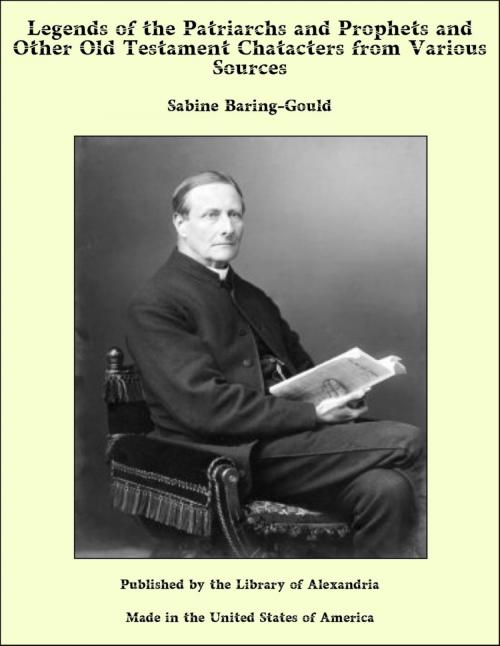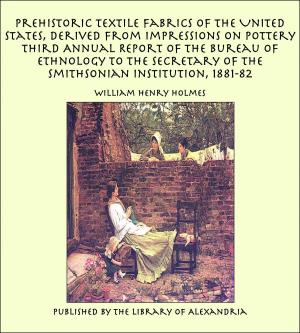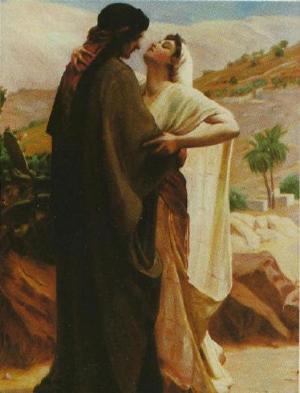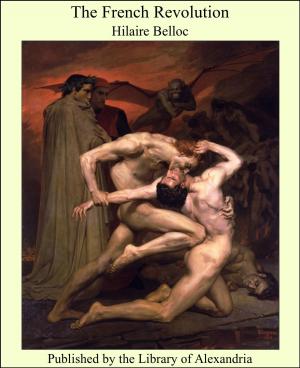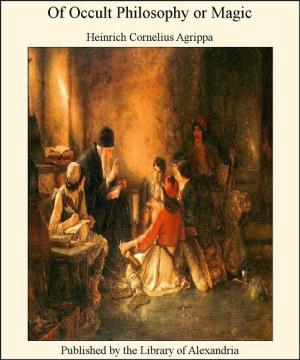Legends of the Patriarchs and Prophets and Other Old Testament Chatacters from Various Sources
Nonfiction, Religion & Spirituality, New Age, History, Fiction & Literature| Author: | Sabine Baring-Gould | ISBN: | 9781465608499 |
| Publisher: | Library of Alexandria | Publication: | March 8, 2015 |
| Imprint: | Language: | English |
| Author: | Sabine Baring-Gould |
| ISBN: | 9781465608499 |
| Publisher: | Library of Alexandria |
| Publication: | March 8, 2015 |
| Imprint: | |
| Language: | English |
In the beginning, before the creation of heaven and earth, God made the angels; free intelligences and free wills; out of His love He made them, that they might be eternally happy. And that their happiness might be complete, He gave them the perfection of a created nature; that is, He gave them freedom. But happiness is only attained by the free will agreeing in its freedom to accord with the will of God. Some of the angels by an act of free will obeyed the will of God, and in such obedience found perfect happiness; other angels by an act of free will rebelled against the will of God, and in such disobedience found misery. Such is the catholic theory of the fall of the angels. Historically, it is represented as a war in heaven. “And there was war in heaven: Michael and his angels fought against the dragon; and the dragon fought and his angels, and prevailed not; neither was their place found any more in heaven. And the great dragon was cast out, that old serpent, called the Devil, and Satan, which deceiveth the whole world; he was cast out into the earth, and his angels were cast out with him.” The reason of the revolt was that Satan desired to be as great as God. “Thou hast said in thine heart, I will ascend into heaven, I will exalt my throne above the stars of God; I will sit also upon the mount of the congregation in the sides of the north; I will ascend above the heights of the clouds; I will be like the Most High.” The war ended in the fall of Satan and those whom he had led into apostasy; and to this fall are referred the words of Christ, “I saw Satan like lightning fall from heaven.” Fabricius, in his collections of the apocryphal writings of the Old Testament, has preserved the song of triumph which the Archangel Michael sang on obtaining the victory. This is a portion of it:— “Glory to our God! Praise to His holy Name! He is our God; glory be to Him! He is our Lord! His be the triumph! He has stretched forth His right hand; He has manifested His power, He has cast down our adversaries. They are mad who resist Him; they are accursed who depart from His commandments! He knoweth all things, and cannot err. His will is sovereignly just, and all that He wills is good, all that He advises is holy. Supreme Intelligence cannot be deceived; Perfect Being cannot will what is evil. Nothing is above that which is supreme, nothing is better than that which is perfect. None is worthy beside Him but him whom He has made worthy. He must be loved above all things and adored as the eternal King. You have abandoned your God, you have revolted against Him, you have desired to be gods; you have fallen from your high estates, you have gone down like a fallen stone. Acknowledge that God is great, that His works are perfect, and that His judgments are just. Glory be to God through ages of ages, praises of joy for all His works!” This song of the Archangel is said to have been revealed to S. Amadeus.
In the beginning, before the creation of heaven and earth, God made the angels; free intelligences and free wills; out of His love He made them, that they might be eternally happy. And that their happiness might be complete, He gave them the perfection of a created nature; that is, He gave them freedom. But happiness is only attained by the free will agreeing in its freedom to accord with the will of God. Some of the angels by an act of free will obeyed the will of God, and in such obedience found perfect happiness; other angels by an act of free will rebelled against the will of God, and in such disobedience found misery. Such is the catholic theory of the fall of the angels. Historically, it is represented as a war in heaven. “And there was war in heaven: Michael and his angels fought against the dragon; and the dragon fought and his angels, and prevailed not; neither was their place found any more in heaven. And the great dragon was cast out, that old serpent, called the Devil, and Satan, which deceiveth the whole world; he was cast out into the earth, and his angels were cast out with him.” The reason of the revolt was that Satan desired to be as great as God. “Thou hast said in thine heart, I will ascend into heaven, I will exalt my throne above the stars of God; I will sit also upon the mount of the congregation in the sides of the north; I will ascend above the heights of the clouds; I will be like the Most High.” The war ended in the fall of Satan and those whom he had led into apostasy; and to this fall are referred the words of Christ, “I saw Satan like lightning fall from heaven.” Fabricius, in his collections of the apocryphal writings of the Old Testament, has preserved the song of triumph which the Archangel Michael sang on obtaining the victory. This is a portion of it:— “Glory to our God! Praise to His holy Name! He is our God; glory be to Him! He is our Lord! His be the triumph! He has stretched forth His right hand; He has manifested His power, He has cast down our adversaries. They are mad who resist Him; they are accursed who depart from His commandments! He knoweth all things, and cannot err. His will is sovereignly just, and all that He wills is good, all that He advises is holy. Supreme Intelligence cannot be deceived; Perfect Being cannot will what is evil. Nothing is above that which is supreme, nothing is better than that which is perfect. None is worthy beside Him but him whom He has made worthy. He must be loved above all things and adored as the eternal King. You have abandoned your God, you have revolted against Him, you have desired to be gods; you have fallen from your high estates, you have gone down like a fallen stone. Acknowledge that God is great, that His works are perfect, and that His judgments are just. Glory be to God through ages of ages, praises of joy for all His works!” This song of the Archangel is said to have been revealed to S. Amadeus.
